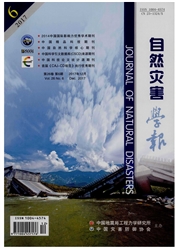

 中文摘要:
中文摘要:
在全球气候变化背景下,高温、强降水和干旱以及海平面上升等极端气候事件趋多趋强,频发的气候灾害给发展中国家的经济社会和人民生活带来了严重影响。面对全球范围内日益严峻的防灾减灾形势,发展中国家已普遍将防御气候灾害作为应对气候变化的首要任务。基于对发展中国家气候灾害和监测预警能力的现状分析,结合我国气象防灾减灾机制、气象灾害监测预警和气象灾害风险管理以及已经开展的气候灾害南南合作经验,提出了未来我国在气候灾害领域南南合作的战略部署和合作重点设想。
 英文摘要:
英文摘要:
Under the background of the global warming, extreme climate events, for example, high temperature, severe precipitation, drought and sea level rise, have been reported to increase in both frequency and intensity and have resulted in severe impact on economic society and people’s life in developing countries. Facing the increasing serious situation of climate disaster prevention and mitigation, climate disaster prevention has become a primary task in adaptation to climate change in developing countries. In this paper, based on the analysis of the capability for the monitoring and early warning of the climate disasters in developing countries, combined with the mechanism of disaster prevention and mitigation, disaster monitoring and early warning, climate disaster risk management and the experience of South-South cooperation in China, we give a strategic plan and the priorities to China’s South-South cooperation in climate disasters in the future.
 同期刊论文项目
同期刊论文项目
 同项目期刊论文
同项目期刊论文
 期刊信息
期刊信息
